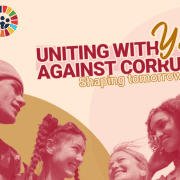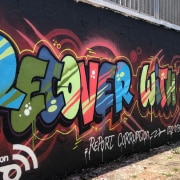|
Getting your Trinity Audio player ready...
|
By Sabeehah Motala
First published on News24
In 2020, Corruption Watch surveyed young people to understand their views and experiences of corruption, its second such endeavour since 2014.
For the first time, the Youth Perceptions Survey asked participants specifically about their experiences with sextortion – a form of corruption where a person in a position of power requests sex or sexual favours for access to a good or service that someone needs.
Sextortion requires both a sexual act and a corrupt act, as well as an imbalance of power between the parties.
Currently, no extensive data exists to confirm whether sextortion is a problem in South Africa, and if so, how widespread it is or who is affected. But besides a parasitic culture of corruption, South Africa is facing endemic gender-based violence (GBV), so it is not unthinkable that the two would interact at some point. In our work with communities, we have certainly come across incidents of sextortion in relation to land, schools, housing and police corruption.
In a report on the subject published this year, Transparency International (TI) has found that sextortion is prevalent in many sectors, from immigration and access to basic services, to the criminal justice system and employment.
Impact on victim
Sextortion can affect victims in several harmful ways.
Firstly, it can have personal effects, such as negatively affecting the victim’s dignity, particularly when it becomes the only way a woman can access basic services or any other need that she relies on. Secondly, it can have physical effects, such as unwanted pregnancy or sexually transmitted diseases, that cause further difficulty and hardships in the victim’s life. Thirdly, it can have social effects, as there may be stigmas around reporting, and around being a victim of sexual violence.
In its two most recent Global Corruption Barometer surveys (GCB), conducted in the MENA and Latin America and the Caribbean regions, TI collected gender-disaggregated data for the first time – making findings not only in relation to how common sextortion is (one in five people have experienced it, or know someone who has), but also in relation to women’s general experiences and views on corruption.
This offers a new angle from which to understand corruption, and gender-specific data can justify the need to adjust anti-corruption work to include a gendered perspective.
Regionally, research conducted by TI Zimbabwe and published in its report titled Gender and Corruption in Zimbabwe 2019, found that 57.5% of women who have experienced non-monetary bribery were asked for sexual favours. The report notes:
“Women who do not have money to pay for bribes are thus forced to use sex as a form of payment.”
Corruption Watch’s Youth Perceptions Survey collected gender-disaggregated data and asked questions around whether participants had been asked for sexual favours. More specifically, participants were asked if they had ever been asked for a sexual favour to access a number of benefits. A third of respondents (31%) answered that they had, most commonly to get a job. Most people who experienced this specific demand live in Gauteng.
In terms of gender, people identifying as females and gender non-conforming are 50% more likely to be asked for a sexual favour in exchange for a job, financial resources, or improved marks at school or university. Notably, despite gender non-conforming people making up just 1% of the entire surveyed sample, they were three times more likely to be asked for a sexual favour when faced with the possibility of being arrested for a misdemeanour they had committed.
With more than half of South Africa’s youth unemployed, young people looking for work are extremely vulnerable to corruption.
Our survey results prove that young unemployed people are also susceptible to sextortion in the employment sector. Furthermore, young women are especially vulnerable to sextortion for jobs, in education, and for access to financial resources – meaning that they pay with their bodies and dignity for access to opportunities for economic growth.
Need for awareness of sextortion
In a society plagued by GBV, and where opportunities are sparse, it is disturbing that women face yet another barrier to improving their prospects. At the intersection of all these systems of power – patriarchy, corruption, neoliberalism – is a young woman just trying to create a better life for herself and her community.
There is a real need for awareness of sextortion, and a need for victims to report it, not just so that perpetrators can be held accountable, but also to expose the size and scope of this obstacle for young people.
There is another bigger picture to this small piece of data.
The Youth Perceptions Survey shows that just about one in three young people have been asked for sexual favours, a larger proportion than the 20% found by the GCB MENA and Latin America reports. It also shows that women and particularly gender non-conforming people are more at risk of sextortion.
This statistic offers a tiny snippet of what women in South Africa are likely to be experiencing in terms of corruption. There is an urgent need to collect more gender-disaggregated data, to have the full picture of how corruption is affecting women and gender non-conforming people.
The Youth Perceptions Survey has revealed that sextortion is among a package of corruption-related issues facing young people. They need to mobilise around these issues, to demand that those in power, the custodians of their future, are held accountable for failing to address them.
More information about sextortion, safe reporting mechanisms, and support for victims will empower young people to vocalise their experiences. And a gendered approach to corruption is absolutely essential, to understand where corruption and GBV meet, and how to tackle it.
– Sabeehah Motala is the campaigns coordinator at Corruption Watch.








